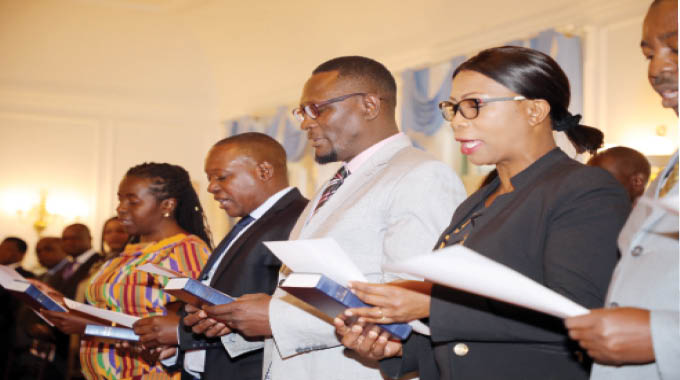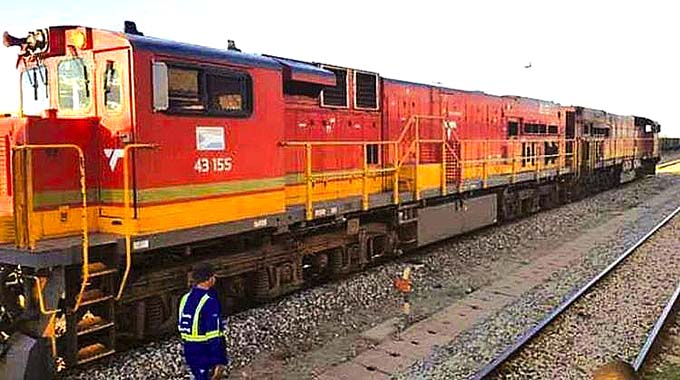LETTERS TO THE EDITOR: Corruption remains a developmental challenge

Stephen Mpofu
ZIMBABWEANS are worried about the low levels of water in Kariba Dam which has seriously reduced power generation for countrywide distribution to sustain normal economic and social activities.
What is more, firewood as an alternative source of domestic power has also become a no-touch environmental resource apparently, so it would appear, because the powers that be want to prevent reckless denudations of woodlands with serious implications for recurrent droughts caused by global warming.
The news in point is that South Africa and Mozambique, both members of the Southern African Development Community, have reportedly said they will come to this country’s rescue with more power supplies.
Zimbabwe recently paid part of its debt to Eskom for the South African power giant to resume supplies to our country to buttress developmental activities in the wake of our depleted local power supplies.
Mozambique’s Cahora Bassa, which has also previously supplied power to our country should, with its promised, renewed help, put Zimbabwe back on the path of its initiatives to reinvigorate the country’s economy.
But, surely, should not energy, as well as air, rail and road traffic be among a development community’s modus operandi to be operationalised automatically by SADC ministers responsible for the portfolios concerned when bottlenecks occur or natural disasters such as drought, which has affected Zimbabwe due global warming, occur.
Be that as it may, it is also incumbent on countries in debt to pay up what they owe so that a development community, such as SADC, operates smoothly rather than in fits and starts.
Close cooperation with community member States, timeously meeting their financial obligations, will augur well for the success of development in our region.
While we are at the subject economic development, it appears prudent to mention in this discourse that Zimbabwe is right now on the verge of devolution – the unbundling of stratified, central government power to local structures of governance accompanied by salient administrative and financial ramifications.
The people should not just feel it, but must actually exercise the responsibilities reposed into their hands by devolution in order not to bungle this very important new step forward in our country’s national developmental initiatives.
In a discussion of devolution in one of our sister Zimpapers’ radio stations earlier this week, experts and contributors to the talk show concurred that it was a must for people to take a leaf from the success of stories of devolution in neighbouring South Africa and Sweden.
The two countries have taken power to the people earnestly rather than verbally, and Zimbabweans should not be ashamed of learning from the experiences of the nations in point, so that, for instance, petty political tug of wars between ruling and opposition political parties do not derail our own devolution.
It behoves on this pen to state without exaggeration that corruption remains an endemic developmental challenge on the African continent, apparently due to Africa’s impoverishment by colonialists who in their heydays in Africa plundered and carted off mineral and other riches back to their native countries.
Zimbabweans have not lived above board when it comes to this devious vice, but hats off to the New Dispensation of President Mnangagwa, which is intensifying its blitz on corrupt officials in its ranks, as well as in its parastatals, with the private sector expected to follow suit.
We suggested in these columns not so long ago that corruption in both the public and private sectors should be treated as suicidal, with offenders being kept in the shade and only be allowed step back into the public limelight after going through evident metamorphoses in their conduct.
It must, therefore, have come as some measure of relief to the public, the news recently that anti-corruption sleuths appointed by the Government has now been emboldened, and made more effective with the granting of arresting, though not prosecuting power, by Parliament.
Hitherto – they may have worked tirelessly – and indeed, did they did so – to ferret out from our society undesirable elements who must have previously ticked them off as “toothless bulldogs”.
But now, given their increased power, the anti-corruption operatives should be deployed to pick up the scent of any money, taxpayers money, reported by the Auditor-General to have been paid out by a Government or parastatal departments to suppliers of goods or services, which, however, were not delivered.
They must interrogate the persons responsible for paying the money and those who received it to discover why money changed hands in the absence of what it ought to have purchased, or if this was a smart way of externalising money with the payer and the recipient of the money involved colluding in the process.
It is, therefore, to be expected that with their new teeth they will bite more offenders to handover to prosecuting authorities.
Countries blighted by corruption might do well to take a cue from Zimbabwe to reinforce their own efforts in weeding out corrupt elements hibernating within the ranks of their public or private sectors.










Comments